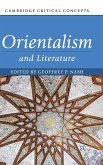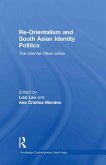This book mainly deals with twentieth-century discourses on postcolonial relationships between Japanese and Pacific Islanders, as have been produced and transformed through the world powers' colonial dynamics over the islands and sea. It examines Japanese images or representations of the area, especially Micronesia on which the term Nanyo centered and considers responses from Pacific Island writers in English. Through such comparisons of Japanese and Pacific Islander texts, this book connects "postcolonial" representations of the Pacific from Japan and the Pacific Islands to examine trans-Pacific cultural movements involved with Japan. In doing so, it brings to light the Pacific as a locale of diverse subjects coming together over imperialist regimes. This book presents the incomplete, unstable, and fluid decolonizations produced from vantage points of the colonizer colonized, diasporic returnees, emigrants, and hybrids. The Pacific reemerges as a palimpsestic communal space concerned with wa: harmony, unity, peace, mildness, pacific, and Japanese. Relating and encompassing imperial and anti-imperial cultures, and drawing their fangs, the wa space produces "oceanic" decolonization. Nanyo-Orientalism is an important book for Japanese and Pacific studies, comparative literature and culture, and postcolonial studies.
Hinweis: Dieser Artikel kann nur an eine deutsche Lieferadresse ausgeliefert werden.
Hinweis: Dieser Artikel kann nur an eine deutsche Lieferadresse ausgeliefert werden.








